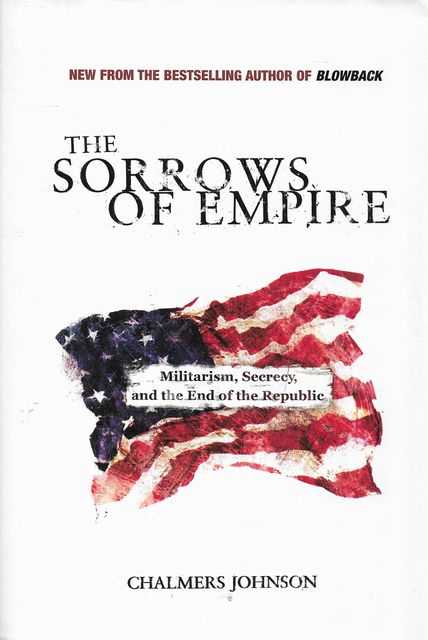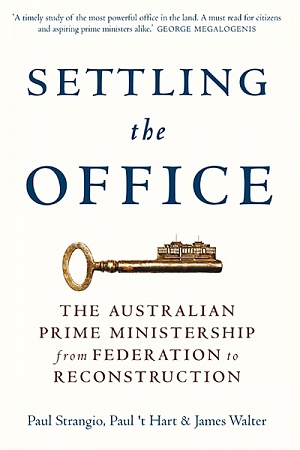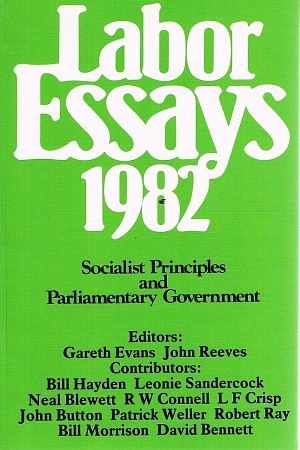The Sorrows of Empire: Militarism, secrecy, and the end of the republic
Verso, $39.95 hb, 389 pp
725 Bases of Power
Chalmers Johnson, who began his career in the US Navy and became a consultant to the CIA, is one of the most respected American experts on East Asia and international affairs. Over the past few years, he has emerged as a significant academic critic of the Bush administration, and what he sees as a dangerously reckless escalation of US imperialism and militarism.
Until a few years ago, only leftists spoke of the US as an imperial power. Today, the claim has become almost a badge of honour, worn by some of President Bush’s most ardent supporters, who see the US as playing a civilising and peacekeeping role through global military, economic and cultural dominance. Governments across the world, ours amongst them, are lining up to play their part as satrapies in the new US empire, which, increasingly, seems both all-powerful and remarkably vulnerable to small groups of terrorists and insurgents.
Under Bush Sr, the US waged a limited war on Iraq, following its invasion of Kuwait, a war supported by the United Nations. Under his son, the US was willing to discount international structures to overthrow the Iraqi government, and now speaks of creating a new global régime built upon the export of liberal capitalism and governance. The rhetoric of this administration reverberates with the imperial mission of Rome and nineteenth-century Britain at their height.
The Sorrows of Empire (along with Johnson’s earlier work, Blowback: The Costs and Consequences of American Empire, 2000) makes an irresistible case for the centrality of imperialism in US policies towards the rest of the world. The contemporary US, building on the foundations for military and economic expansion that date back, on one reading, to the end of World War II (and on another to the Spanish–American War of 1898), is in thrall to what President Eisenhower, more than forty years ago, called ‘the military–industrial complex’. Johnson sees ‘the habitual use of imperial methods’ as addictive, and imperialism and militarism as closely interconnected.
For Johnson, the US is caught up in a self-perpetuating cycle of imperial expansion. As he writes: ‘It would be hard to deny that oil, Israel, and domestic politics all played crucial roles in the Bush administration’s war against Iraq, but I believe the more encompassing explanation for our second war with Iraq is no different than that for our wars in the Balkans in 1999 or in Afghanistan in 2001–2002: the inexorable pressures of imperialism and militarism.’ This claim seems to me to combine the strengths and weaknesses of Johnson’s analysis, which sees a greater degree of coherence and consistency to the exercise of US power than may be the case.
It is hard to remember that only ten years ago there was discussion of the so-called ‘peace dividend’ that followed the end of the Cold War, and a brief moment when the new world order of Bush Sr appeared to promise greater international cooperation and even moves towards creating new forms of global governance. The orthodox view is that this period of hope was destroyed by the rise of terrorism and rogue states. Critics such as Johnson see it as the consequence of US hubris and of the inexorable drive to create a global empire.
While avoiding reference to Marx or Lenin, whose analyses of capitalism and imperialism underlie much of Johnson’s assumptions, he argues that the US is bound up in a relentless pursuit of military and economic control over more and more of the globe, and that this, in turn, creates a domestic polity increasingly dependent on such expansion for its own prosperity. Even if we accept much of this argument, it is necessary to take more seriously than Johnson does the peculiar mix of fear of outside attack and missionary zeal to reform the rest of the world that so dominates the perceptions of the American élite (and makes it possible for them to win domestic support for most of their foreign adventures).
The US empire creates its own vast ruling class, in both the military and business, whose vested interests are shared by the continued extension of US power. Johnson demonstrates this most clearly through his detailed analysis of the vast network of US bases around the world, which support large sub-economies in both America and overseas. (Currently, the US has 725 official military bases outside the country, with more than half a million Americans stationed abroad in connection with the military.) In the same way, more and more of the domestic US economy feeds off the imperial infrastructure, whether through the building and selling of weapons or through the huge contracts that are currently being issued to ‘rebuild’ Iraq.
Like so many critics of the contemporary US, Johnson is unwilling to concede ambiguity, confusion and self-deceit to those who direct foreign and military power. The US was reluctant in its involvement in the Balkans, and was far less clearly acting out of self-interest (as defined by Washington) than in either Afghanistan or Iraq. Indeed, early in the book Johnson writes that: ‘By 2002 … the United States no longer had a “foreign policy”. Instead it had a military empire.’ His concession that earlier US interventions, with certain clear exceptions, were rather different from those of Bush Jr seems to have been forgotten in the passion of his concluding chapters.
In common with most critics of the US, Johnson wants to ascribe Americans with far more power to affect the rest of the world than they in fact have. It is likely, as he claims, that the CIA briefed Sir John Kerr in the lead-up to his dismissal of the Whitlam government. It is nonsense to assert that, after the dismissal, ‘Australia teetered close to revolution’. Such exaggerations undercut a powerful argument, and make it too easy for Bush apologists to dismiss Johnson.
Like Gore Vidal, whose language he at times seems to echo, Johnson writes out of an old-fashioned nostalgia for an American republic that is long lost. Today’s America, says Johnson, is doomed to four sorrows: a state of perpetual war; a loss of democracy and constitutional rights; a system of propaganda and glorification of war and the military; and bankruptcy at home. If he is right, the US empire will collapse under the weight of its own ambitions, and he ends The Sorrows of Empire with a warning that nemesis waits to punish Americans for their pride and hubris.
Compared with other recent books assailing US foreign policy – one thinks of Noam Chomsky’s, but even more of the quite absurdly hyperbolic Why Do People Hate America? (2003), by Ziauddin Sardar and Marry Wyn Davies – Johnson’s book is a model of careful analysis and argument. I hope that John Howard and Alexander Downer read it and ponder the implications for Australia of our growing closeness to the current US administration. One wonders where the line might be drawn between the strengthening of an alliance and the surrender of national sovereignty. The conflation in the language of our conservatives between ‘anti-American’ and ‘anti-Australian’ could even be read as a new form of treason, whereby loyalty to Australia’s interests are increasingly defined in terms of serving the needs of the US industrial–military complex.












Leave a comment
If you are an ABR subscriber, you will need to sign in to post a comment.
If you have forgotten your sign in details, or if you receive an error message when trying to submit your comment, please email your comment (and the name of the article to which it relates) to ABR Comments. We will review your comment and, subject to approval, we will post it under your name.
Please note that all comments must be approved by ABR and comply with our Terms & Conditions.